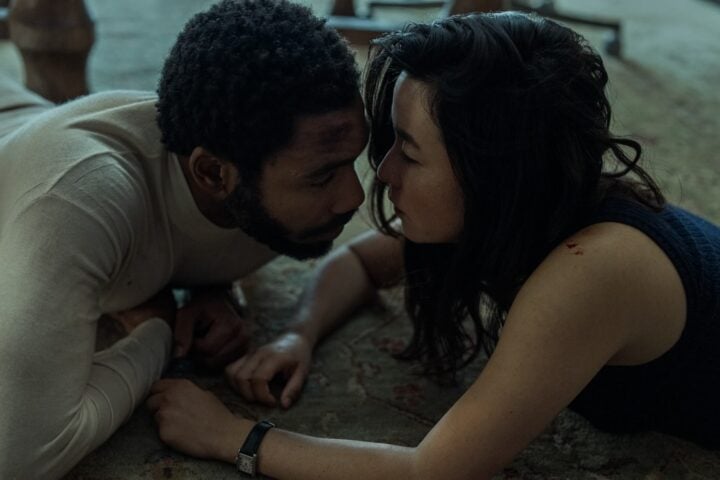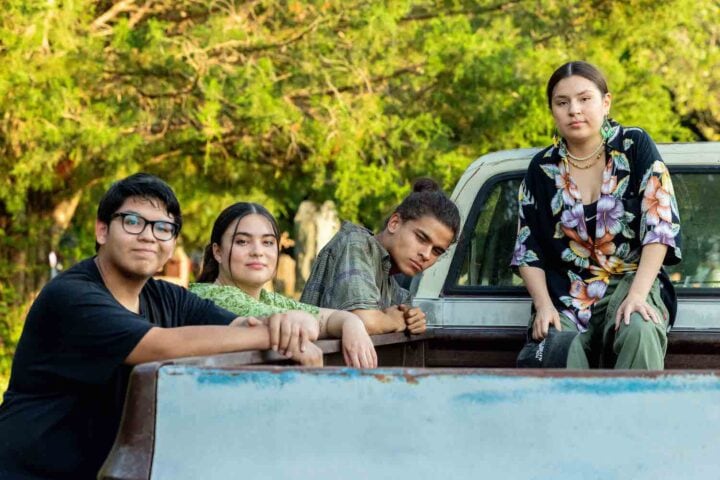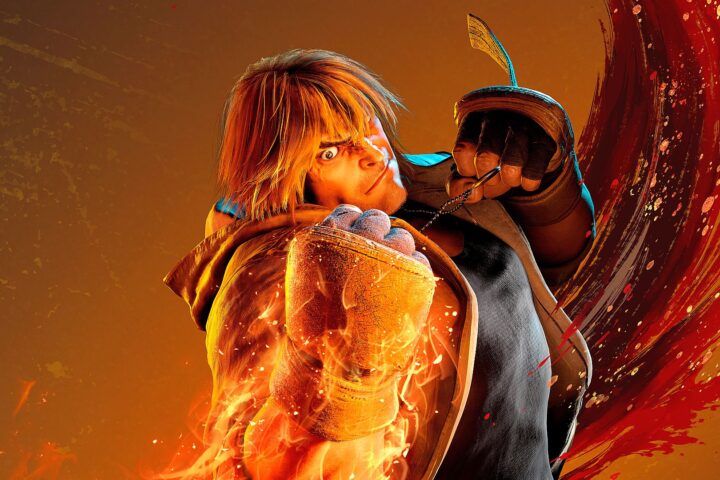When it comes to TV, it’s all about sticking the landing. Wildly popular shows like Seinfeld, Lost, and Game of Thrones flubbed their finales in myriad, if very different, ways, leaving fans scratching their heads or, preposterously, demanding a redo. How much a show’s overall reputation is damaged depends in large part on how badly things were botched and, more importantly, how much good will and trust was earned among the faithful throughout its run.
This year has already seen a handful of popular shows take a bow, with Ted Lasso almost completely fumbling the ball, and critical darlings Barry and The Marvelous Mrs. Maisel garnering mixed reviews for their final episodes, despite very strong seasons. After killing off its male lead, The Great seemed to wrap things up satisfyingly enough for its heroine but left the door open for more (Hulu has yet to announce whether the series will return next year).
Another loquacious satire, Succession, similarly dispatched its proverbial monarch mid-season but ended on an open-ended, yet pitch-perfect, note. Here’s hoping that the remainder of 2023—including the industry’s various labor disputes and guild negotiations—plays out more smoothly than a hostile corporate takeover. Sal Cinquemani
Barry
Like Breaking Bad before it, HBO’s Barry barreled toward an inevitably tragic denouement. In its final season, the series put its characteristically unnerving balance of the humorous and the tragic front and center. The ambitious but divisive final season found star and co-creator Bill Hader behind the camera of all eight episodes, channeling the spirit of Paul Thomas Anderson in his tightly controlled frames. The series skillfully pulled together all of the themes it has explored over its previous three seasons into a taut knot, if not a neat bow (the show’s meta conclusion threatened to undermine one of its biggest strengths: its moral ambiguity). But from the season’s first episode, in which Gene (Henry Winkler) is hailed as a hero for Barry’s (Hader) arrest, to its epilogue, which found both men facing justice—or something close to it—Barry remained absurd, contemplative, and deliciously dark in equal measure to the very end. Alexa Camp
Beef
If one were looking to sum up Beef in a single image, it might be a face staring directly into the camera with a smile stretched forcibly across its face and eyes that betray the existential despair behind them. The Netflix series, which was created by Lee Sung Jin and co-produced by A24, embodies the popular “this is fine” meme, exploring the desperate impulse to shrug your shoulders as the world burns around you. The hilarious but gut-wrenching dramedy begins with the opposite of a meet-cute—an unmistakable instance of hate at first sight. Danny (Steven Yeun) is pulling out of a parking lot when a car horn erupts behind him. The driver, Amy (Ali Wong), flips him off before speeding away as Danny tears after her, leading to a furious car chase that will ultimately send both of their lives careening in different and very dangerous directions. Ross McIndoe
Dead Ringers
A gender-inverted adaptation of David Cronenberg’s Dead Ringers offers a welcome, if sometimes unsubtle, twist on the original with its social commentary about maternal health and bodily autonomy. As in Cronenberg’s visually striking film, blood-red hospital scrubs provide an aesthetic clue that something is unwell and unsustainable. Reality and surreality uneasily coexist. In a satisfying externalization of the entwined fates of the twin obstetrician sisters played by Rachel Weisz, two-ness is visually front and center. Extreme camera angles, sometimes fully upside-down, cause the world to briefly appear like a mirror image of our own. We’re frequently shown the bisecting of an egg cell in mitosis under a microscope, embodying the best of the brutal logic at the center of this Dead Ringers: Even within the process of making life—of creating—there’s both a miraculous doubling and a necessary cleaving in half. Amanda Feinman
The Great
This season, shit got real. Which is saying something given that the previous season of The Great began with Catherine (Elle Fanning) successfully staging a coup to overthrow her husband, Peter III (Nicholas Hoult), and ended with her stabbing him—or, rather, his snaggle-toothed doppelgänger—five times in the back after learning that he fucked and killed her mother. But Peter’s startling actual death in the middle of season three was an icy shot through the body that Hulu’s deliciously ahistorical dramedy probably needed. Peter was a petulant manchild with a penchant for pussy and homicide; that he was loveable, or sympathetic at all, is to Hoult’s immense credit as an actor. But the profound impact of Peter’s loss on not just Catherine, but his best friend Grigor (Gwilym Lee) and one-time lover—and Grigor’s wife—Georgina (Charity Wakefield) puts into stark relief just how vital he was to them, to us, and to the series itself. The Great has yet to be renewed for a fourth installment, but if the writers can pull off another season as unexpectedly thrilling as the first three, that would be, well, a coup. Cinquemani
I Think You Should Leave with Tim Robinson
Tim Robinson’s Netflix sketch show enters its third season with a certain level of expectation, which might seem antithetical to a series predicated on unpredictable absurdity. We’ve come to expect certain guest stars, themes, and setups, but I Think You Should Leave still manages to surprise, finding new ways of tapping into the realm of grotesquerie and social despair. In particular, the third season makes use of more elaborate gags like an inappropriate computer game and a doggy door intruder, adding some truly bizarre images to its repertoire that heightens the interpersonal strife surrounding them. The show’s continued success speaks to a relatable core of authentic discomfort and desperation, addressed by stretching the proceedings far beyond reality. Steven Scaife
The Marvelous Mrs. Maisel
The final season of The Marvelous Mrs. Maisel is a course correction of sorts, paring back the clamorous side plots that had started taking up too much of the show’s oxygen while retaining its electric spirit. The season finds Midge stuck in the age-old bind of professional women. Keeping her head down and waiting for her “turn”—a recurring phrase this season that highlights how a system of privilege pits oppressed groups against one another—practically ensures that she’ll be ignored. As in previous seasons, series creator Amy Sherman-Palladino keeps Midge and her manager, Susie (Alex Borstein), careening from surprise success to inexplicable catastrophe. Their relationship remains the heart of the show, their ups and downs as volatile as anything between Midge and her doting ex-husband, Joel (Michael Zegen). Ever since Midge first took the stage at the Gaslight Cafe in the show’s pilot episode, she’s been aiming for what feels like a pipe dream in the era of chauvinism. It’s only in the final season, though, that the limitations of her still-awe-inspiring ambition become crystalized. Chris Barsanti
Party Down
Recent real-world events have done little to dull the cynical, pessimistic outlook with which co-creator John Enbom and his fellow writers infuse the long-awaited third season of Party Down. The series smartly uses the gap between its seasons and the introduction of a new generation of characters—including Lucy (Zoë Chao), an experimental chef stuck making pigs in a blanket, and would-be influencer Sackson (Tyrel Jackson Williams), whose “craft” is making “content”—to explore the difficulty of achieving not just personal evolution, but social and political progress. Where the show’s first season included a gathering hosted by twerpish college Republicans, season three features a conference organized by smug alt-righters, succinctly charting the course of contemporary American conservatism. In this and other instances, Party Down deftly tackles timely issues with breezy reckonings, interrogating them—and laughing at them—but avoiding ham-fisted didacticism. Niv M. Sultan
Poker Face
Natasha Lyonne’s raspy, rumpled character in Netflix’s Russian Doll has drawn comparisons to Peter Falk’s eponymous detective in Columbo. Poker Face feels all but reverse-engineered from those comparisons by creator Rian Johnson. Sticking strictly to a no-frills case-of-the-week structure, the series even boasts a classical style of presentation, with old-timey opening credits and, despite taking place in the present day, the sort of rich, warm color palette often associated with a period piece. Through the character of ex-cocktail waitress Charlie Cale, Poker Face gives Lyonne as much runway as possible to rasp and shamble her way through murder mysteries populated by a murderers’ row of guest stars. The structure is perhaps the most overt page taken from the Columbo playbook, with each episode showing us in no uncertain terms who committed a murder. The question here isn’t whodunit but how have the perpetrator(s) erred in such a way that will get them caught by Charlie? Scaife
Succession
By fully embracing the end, Succession delivered the finale that its characters deserved. If you view the show mostly as a black comedy, then the prospect of watching the Roys take shots at each other for another few years is an enticing one. The sharpness of the writing isn’t dulled in the show’s final season, with jokes that have been precisely engineered to elicit uncontrollable guffaws. But the problem with a show like Succession remaining in a holding pattern is that no matter the pleasures of its cutting dialogue, everything ultimately needs to get patched up so that viewers can go again for another round next season. Freed from this obligation, season four gave its characters permission to hurt each other in ways that felt as if they won’t never be healed. And when the big dramatic blows came, they landed harder than ever. McIndoe
Unicorn: Warriors Eternal
On a visual level, Unicorn: Warriors Eternal pulses with boundless energy and infectious whimsy that we expect from Genndy Tartakovsky’s work, but the show’s true resonance lies in its exploration of the Chosen One trope. Tartakovsky concocts a magic system that’s as ostensibly simple as it cosmically cruel: Rather than stumble upon an otherworldly object or emerge from a freak accident with flashy new abilities, the show’s heroes are straight-up possessed by immortal warriors who must take new hosts whenever their old ones perish. The archetype of the reluctant hero practically defines the high fantasy genre. Hell, even most superheroes fall into this category. Between the acquisition and the refinement of those powers is a choice: Use them for good, for evil, or not at all. In Unicorn: Warriors Eternal, the answer comes in the form of a salient question: What if these heroes didn’t have that choice at all? Hayden Mears
Since 2001, we've brought you uncompromising, candid takes on the world of film, music, television, video games, theater, and more. Independently owned and operated publications like Slant have been hit hard in recent years, but we’re committed to keeping our content free and accessible—meaning no paywalls or fees.
If you like what we do, please consider subscribing to our Patreon or making a donation.







Perry Mason is better than most of your list.
Only 10 shows? Surprised The Bear isn’t on here.